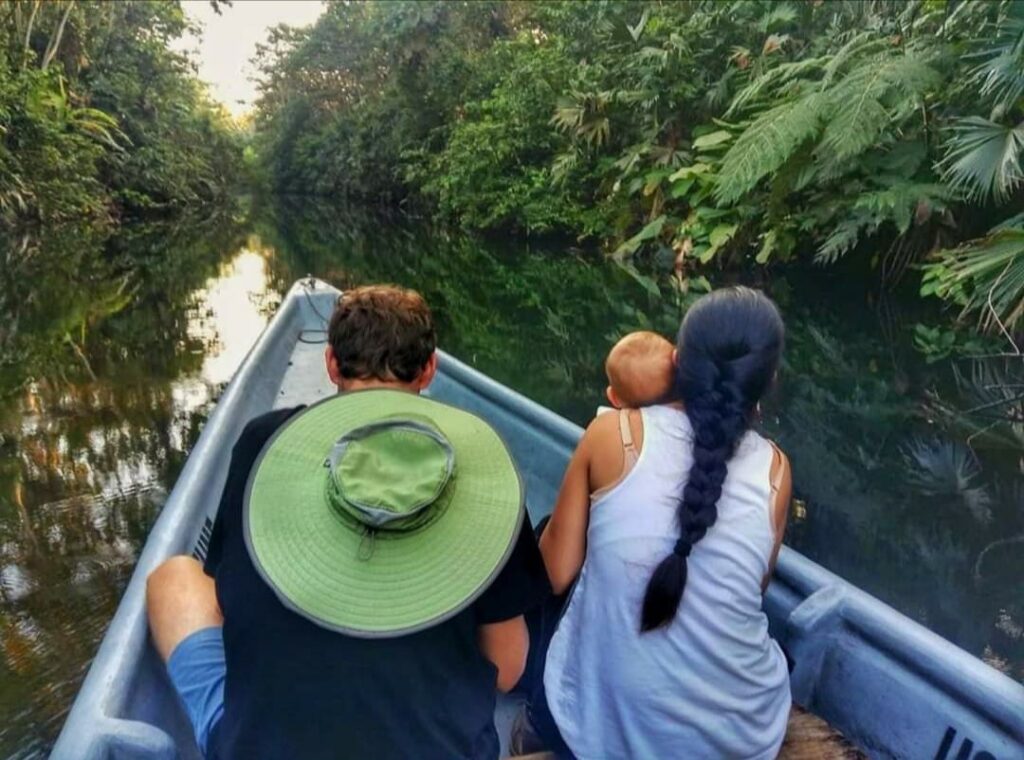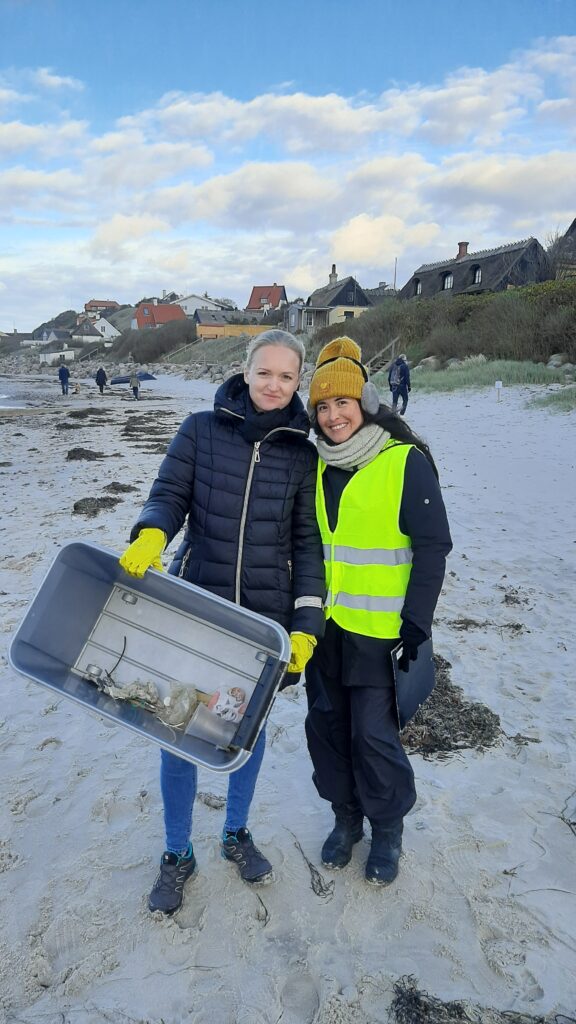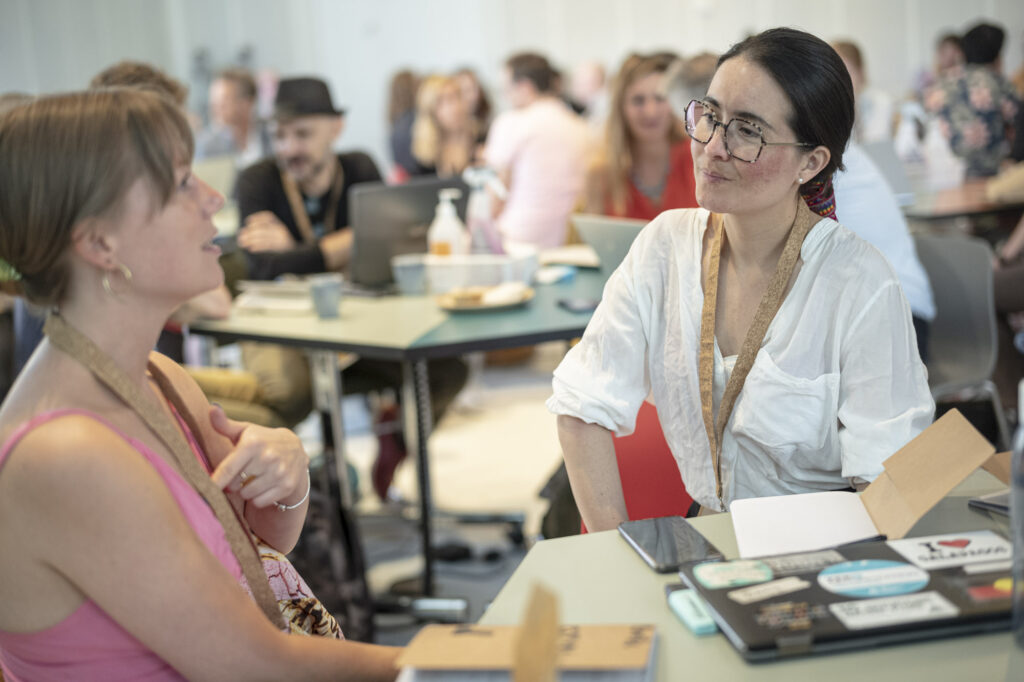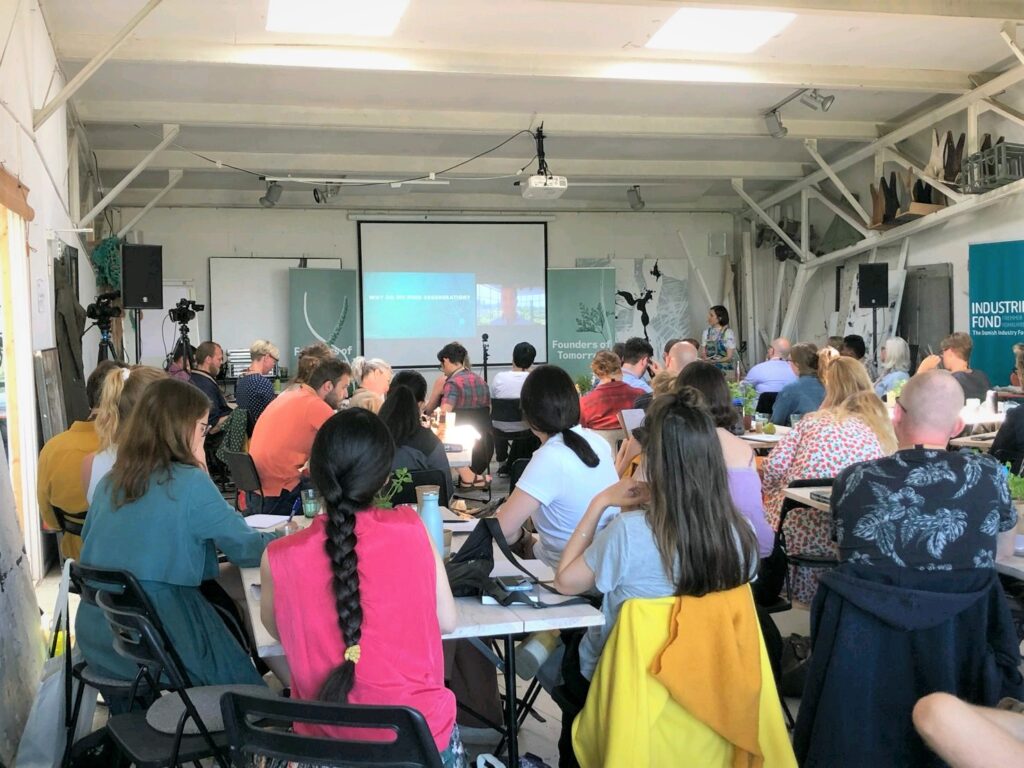
“What I brought with me from Founders of Tomorrow is that technology must be deeply connected with empathy, equality and opportunity to access.”
This article is part of a series of ‘Chat with a FoTer’ where we sit down with a FoT alumni to discuss their journey before and after participating in Founders of Tomorrow.
Daniela Cox is CEO of Plura Consulting. She participated in the Founders of Tomorrow ‘Regenerative visions – beyond sustainability’ camp in June 2021. I reached out to Daniela to hear more about her journey from Galapagos to Denmark, her experiences in starting and running a company focusing on regeneration and diversity and the insights she has gained along the way.
At the time of the interview, Daniela is in Quito, Ecuador with her mother and daughter, getting ready to travel to Galapagos where she will give birth to her second child.
Hey Daniela! Will you start by telling us your story?
I’m a third generation Galapagos islander. I left the island when I was 14 to study in mainland Ecuador. Fast-forward some years, and I met my Danish husband in Australia where we were doing our Master’s in sustainable business. We considered Denmark to be the right place for applying sustainability, raising our daughter, and finding a job, so we moved there. Together with my mother-in-law, I established Plura Consulting and became the CEO.
Most companies have a limited understanding of the potential of sustainability and diversity. They see sustainability from an environmental scope and diversity from a gender scope. This results in a loss of new ideas, therefore constraining a company’s potential for innovation. At Plura, we help companies in Scandinavia to experience and implement sustainability and diversity from a holistic and systemic point of view. We offer both courses and advisory in Denmark and abroad. We also have some new ideas cooking on how to provide an experience of diversity – but more on that in a few months!
How has that experience been?
I’ve learned a lot along the way. When we started, I had more experience in sustainability than business. It has also been really enriching personally. Over time, we have expanded from sustainability to also work with diversity. This stemmed from my own experience as a foreigner in Denmark, as someone coming from Galapagos, as a mother and entrepreneur.
Denmark has amazing structures, and everything works well in society. As a community, however, there is a lot we can bring from countries with living cultures. In Denmark, when talking about diversity, people always talk about gender. But how about neuro-diversity, ethnicity and other things that make us diverse? How can we better embrace different perspectives?

What role has regeneration played in your journey?
Before becoming acquainted with the concept of regeneration, we were afraid of expressing ourselves in the game-changing industry of sustainability while experiencing a new culture for me. We wanted to help companies by providing them with sustainable solutions –financially, environmentally, and socially. It is important that we have tools to measure what a company has and where it can improve in its governance and its relations with workers, suppliers, customers and the environment. Being trained as a B Corp Leader in the Nordics gave me the basis for advising companies through stakeholder value. But in Plura we felt it was necessary to complement B Corp’s assessment tools and certification processes towards more humane, adaptive, and in essence, regenerative principles – by embracing diversity of knowledge and equitable practices.
At a certain point, I faced a confrontation with myself and in the company. This came from unconscious perspectives of colonialism, eurocentrism and privilege that people around me had. I needed to decide if I should continue and how I can represent my identity and my contribution here in Scandinavia going forward. I ended up taking a bigger role in the company, which was an opportunity to communicate what I and others face in terms of diversity in business. Perfection and sustainability had gone hand in hand for me. I let go of that. I became more honest. Openness and transparency have helped me to reach out to a new target group – a more conscious and globally minded audience.
Where do you get your inspiration?
I’ve been inspired by ecofeminism, especially the work of Vandana Shiva and the struggles of our Amazonic women on how in our worldwide societies women and nature are undervalued to sustain our economic system (Oxfam Report, 2020). I believe we need to prioritise education and caring instead of competition and exploitation. At the same time, the Doughnut Economy framework by Kate Raworth helps us analyse planetary boundaries while securing we all have the same level of human rights and responsibility.
What do you bring with you from Galapagos?
What I brought with me from Galapagos is an entrepreneurial mindset. Galapagos is unique in the way that it is a very young society. We work collectively and move beyond our own financial goals to help others. It is also a place with a strong culture of activism: we protest, whether it is illegal fishing or authorities not using local expertise. We claim our rights. Since I was young, my father brought me to the city hall.
Also, in entrepreneurship, respecting each other’s voices is important. Everyone’s voice needs to be listened to. In Galapagos, you are part of a community even if you don’t share the same perspectives or values.

Is there something you’ve had to learn along the way?
One of the biggest lessons for me has been the art of managing conflict. It’s about not seeing conflict as something with winners and losers but as a learning experience. For this, we need to communicate. This is something I bring with me when raising my daughter, in my relationships with my husband and in-laws, and with customers.
As a woman, I have learned to value my work. I used to give my knowledge for free. Actually, Laura Storm (one of the leading Regenerative thought leaders) is a real businesswoman who knows how to charge for her work. Her example has made me no longer feel sorry for getting paid for sharing my knowledge.
In June 2021, you partook in the one-week program of Founders of Tomorrow 2021 ‘Regenerative visions – beyond sustainability’ What was your experience?
It was the first time I’d been exposed to so much technical knowledge in such an enriching way that was easy to understand. I’ve never been a technical person – in Galapagos, we even struggle with internet access. I felt really privileged to be exposed to experts around the world. Bringing this knowledge to Galapagos would be amazing! We are so far away, and people lack access to this type of knowledge and information.
What I brought with me from Founders of Tomorrow is that technology must be deeply connected with empathy, equality and opportunity to access. It should not be the same as sustainability, which has become elitist and not accessible to everyone. Technology has the potential to connect the right people and reach communities that are isolated and remote.
At FoT, one of the speakers mentioned that you don’t have to follow the patterns of others but need to find your own way, own market and own niche. This is what I’ve been through and managed to create.
Thank you, Daniela, for taking the time and sharing your thoughts with us! We wish you all the best and look forward to seeing you soon!

